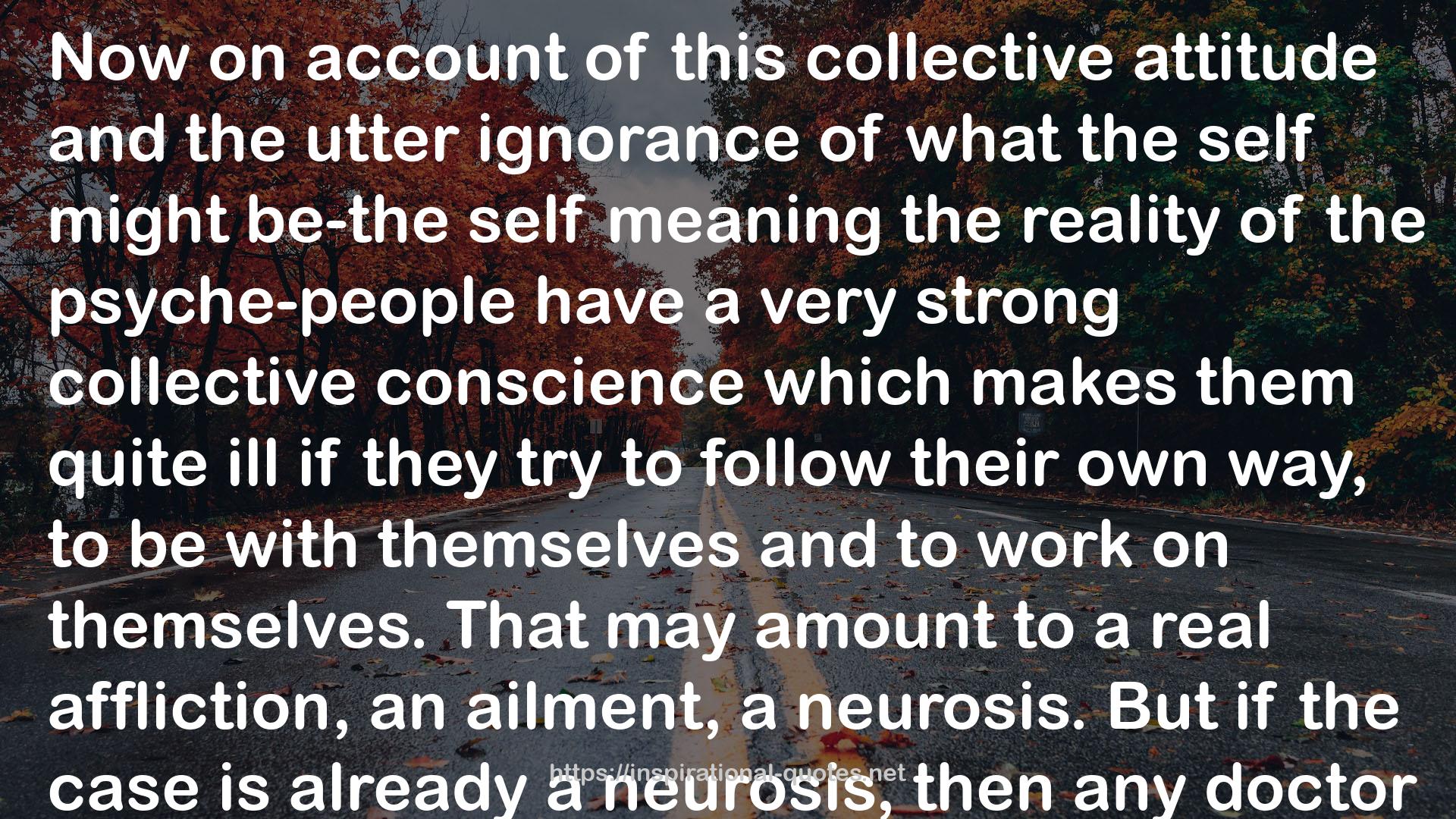" Now on account of this collective attitude and the utter ignorance of what the self might be-the self meaning the reality of the psyche-people have a very strong collective conscience which makes them quite ill if they try to follow their own way, to be with themselves and to work on themselves. That may amount to a real affliction, an ailment, a neurosis. But if the case is already a neurosis, then any doctor who really understands about these matters would be forced to say, "If the patient wants to be cured he must follow the way of his neurosis"-just the thing everybody is speaking against. People say; "If you have a neurosis keep away from it, travel to India or anywhere else where there is no neurosis, leave your neurosis in Europe, bury it there." But I should say, "Follow the way of your neurosis; it is the best thing you ever produced, your real value."
And that is very much what Nietzsche means here. But he questions whether one has the right to choose that way or not, and that is of course one of the major problems. It is by no means sure that one has either the power or the right to go to one's self, because this is a very great and difficult enterprise. As, for instance, the Catholic church may be in doubt whether somebody has the power, the right, or the faculty to be a priest, to live like a priest or a nun. And the way to one's self, the way to one's own affliction, is the hardest, the most difficult way. We really can question, "Has one really the power, the energy, the patience to do it? And also, has one the right to do it?" For you might do it from a wrong motive; you might be really selfish-for example, if you are going to yourself in order to indulge in yourself and not to work.
Jung, C. G.. Nietzsche's Zarathustra: Notes of the Seminar given in 1934-1939. Two Volumes: 1-2, unabridged (Jung Seminars) (p. 707) "
Image for Quotes

And that is very much what Nietzsche means here. But he questions whether one has the right to choose that way or not, and that is of course one of the major problems. It is by no means sure that one has either the power or the right to go to one's self, because this is a very great and difficult enterprise. As, for instance, the Catholic church may be in doubt whether somebody has the power, the right, or the faculty to be a priest, to live like a priest or a nun. And the way to one's self, the way to one's own affliction, is the hardest, the most difficult way. We really can question, "Has one really the power, the energy, the patience to do it? And also, has one the right to do it?" For you might do it from a wrong motive; you might be really selfish-for example, if you are going to yourself in order to indulge in yourself and not to work.
Jung, C. G.. Nietzsche's Zarathustra: Notes of the Seminar given in 1934-1939. Two Volumes: 1-2, unabridged (Jung Seminars) (p. 707)" style="width:100%;margin:20px 0;"/>